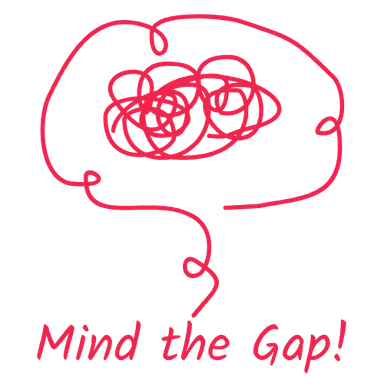Why Loss Hurts Twice as Much as Gain Feels Good
2025-03-23
Your brain treats loss like danger, even when the stakes are trivial. That instinct once kept us alive; today it often keeps us stuck. Stepping beyond it isn’t about more willpower—it’s about seeing what lies on the other side of fear.
Here’s the 14 min audio conversation exploring this idea.
Ideas worth listening to !
Why We Fear Losing More Than We Value Gaining
You buy a sleek new pair of noise-cancelling headphones. Pricey, but the store promises a 30-day no-questions return. “Perfect,” you think. “If they don’t live up to the hype, I’ll just send them back.”
For the first few days, you’re smitten. The sound wraps around you like velvet, the outside world fades. And then—the cracks show. Battery life is shorter than advertised. The ear cushions pinch. They sit on your desk more often than on your head.
Rationally, it’s simple: return them, get your money back.
But you don’t.
Instead, you whisper excuses: They’re not that bad. Maybe I’ll get used to them. You know the refund is the smart move, but somehow letting go feels harder than holding on.
That tug inside you? It’s not really about headphones. It’s about a deeper truth: we fear losing more than we value gaining.
The Ancient Alarm System
Our brains treat loss like a flashing red light. And there’s an evolutionary reason for it.
For our ancestors, losing food, shelter, or status wasn’t just inconvenient—it could mean danger, even death. Finding a new patch of berries was nice, but dropping the ones already in your hand? That could leave you hungry.
Daniel Kahneman and Amos Tversky captured this tilt in their classic Prospect Theory (1979): the sting of losses weighs about twice as much as the joy of equal gains. Robert Sapolsky, in Behave, phrases it more bluntly: “When organisms face uncertainty, the bias is toward caution.”
That ancient bias kept us alive. Today, it’s why even something as trivial as returning headphones feels strangely threatening.
How It Shows Up Now
Loss aversion doesn’t announce itself. It seeps in quietly.
- Holding onto a dipping stock—not out of optimism, but because selling feels like admitting defeat. Behavioral economists like Richard Thaler call this the disposition effect: clinging to losers while cashing in winners too early.
- Overpacking a suitcase—driven by “just in case” whispers.
- Stalling on decisions—as if keeping every door open is safer than stepping through one.
Neuroscience confirms the tug: in a 2007 Science study, Brian Knutson and colleagues found that the amygdala—the brain’s threat detector—fires more intensely when people anticipate losses than when they anticipate gains. Your body reacts as if danger looms, even when the stakes are laughably low.
Spot Your Inner Caveman
Notice the moments when your inner caveman shows up in modern life. By naming these patterns, you build awareness and start steering with your wiring instead of against it.
Can you recall a time when the sting of one loss felt heavier than the joy of several wins?
The Subtle Price of Playing Safe
At first glance, caution looks like wisdom. But it extracts a hidden toll.
We bite our tongue in meetings because silence feels safer than a stumble.
We sidestep new hobbies because failure whispers louder than curiosity.
We grip old routines because the unknown feels riskier than the known—even if the known leaves us restless.
Daniel Gilbert, in Stumbling on Happiness, notes that people often regret the chances they never took far more than the failures they endured. Safety keeps us comfortable, but it also keeps us smaller.
Reframing the Story
Loss aversion isn’t a bug in our wiring—it’s the wiring. Cass Sunstein and Richard Thaler, in Nudge, remind us that the trick isn’t brute willpower, but shaping our environment so the safer choice is also the forward-moving one.
Sometimes the reframing is simple: What if loss is just another word for learning? What if the real danger isn’t losing, but never daring?
That small shift—from fear of losing to curiosity about gaining—is often enough to loosen the grip.
The Takeaway
Loss aversion will always hum beneath the surface. But it doesn’t have to steer.
Every time we notice it, we get a choice: play safe and stand still, or step forward and discover what waits just outside the fence.
Because sometimes, the greatest risk isn’t what you might lose—it’s what you never give yourself the chance to gain.
Loading challenge...
References & Further Reading
Related Neurocient Articles

Enjoyed this? Get one fresh insight each week straight to your inbox.
You might also like:
The Caveman Code Behind Everyday OverreactionsCatastrophizing isn’t weakness—it’s your brain running ancient survival code in a modern world. Understanding this mismatch helps you calm spirals before they take over.